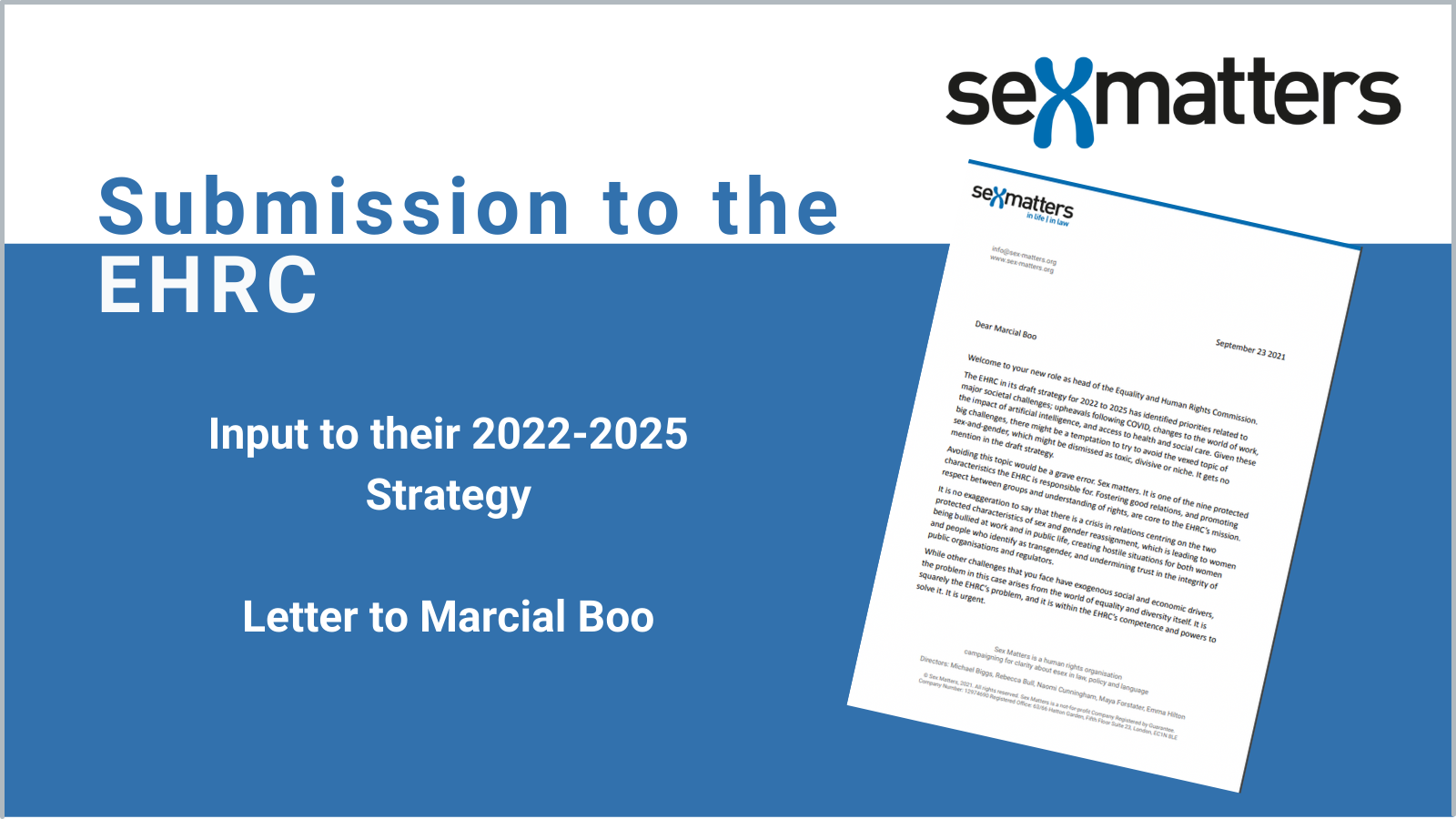The EHRC must step up and provide clarity on single-sex services

The Equality and Human Rights Commission is consulting on its strategic plan for 2022–2025. We have made a submission in the form of a letter to the incoming head of the EHRC, Marcial Boo.
Sex is one of the nine protected characteristics for which the EHRC is responsible. Fostering good relations, and promoting respect between groups and understanding of rights, are core to the EHRC’s mission. There is a crisis in relations centring on the two protected characteristics of sex and gender reassignment.
It is leading to women being bullied at work and in public life, creating hostile situations for both women and people who identify as transgender, and undermining trust in the integrity of public organisations and regulators.
Solving this does not depend on long and expensive test cases, but on the EHRC fulfilling its mandate with leadership and courage. We call on the EHRC to:
- provide guidance that clearly communicates what the Equality Act 2010 defines and prescribes in an area that has become muddied and confused
- step back from using the Act to promote childhood transition, a medically controversial treatment outside the EHRC’s competency and mandate.
We think that there is much that the EHRC could do to provide clarity without waiting for litigation. In particular, it could communicate more clearly and loudly:
- the clarifications made in the EHRC’s 2018 statement about the meaning of “sex” in the law
- that people should not be discriminated against or harassed for their beliefs on sex and gender
- that service providers should have clearly expressed rules and policies about which services are single sex and which are open to members of both sexes, in order to have clear expectations and treat everyone with respect
- that service providers that only provide mixed-sex facilities and accommodation should consider whether this discriminates against groups of users with protected characteristics, in particular women and girls, and those with religious or other beliefs which preclude sharing such spaces with members of the opposite sex
- that service providers that only provide separate-sex facilities should consider whether this results in discrimination against people with the protected characteristic of gender reassignment who feel uncomfortable
acknowledging their sex - that service providers that provide specialist single-sex services, including for example cervical-smear test clinics, menopause counselling or rape-crisis centres, are allowed to provide services on the basis of biological sex and not self-identified gender or legal sex
- that “gender-affected” sporting activities are allowed by law to be single-sex for reasons of fair competition and safety.
